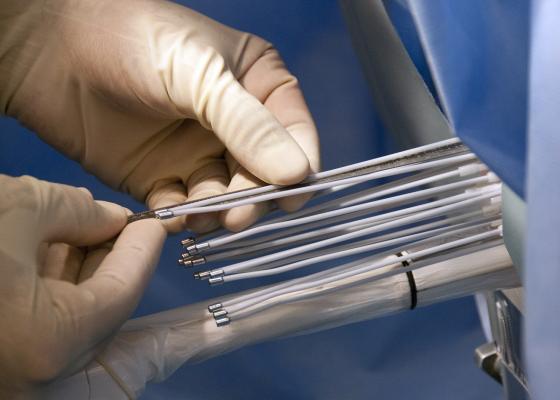
October 31, 2018 — A new analysis of nearly 600 men receiving brachytherapy for prostate cancer shows overall procedure-related complications within four months of treatment is less than 20 percent. All patients were treated at Fox Chase Cancer Center in Philadelphia.
Brachytherapy is a form of internal radiation therapy in which doctors implant permanent or temporary radioactive sources into the prostate. It confines the radiation to the tumor and reduces radiation exposure to the surrounding healthy tissues. It can be administered either as permanent low dose-rate (LDR) implant, or as temporary high dose-rate (HDR) implant. In this study, 97 men received HDR and 485 received LDR.
Of the 582 men studied, 477, or 82 percent reported no complications. The most common complication within four months was lower urinary tract symptoms, which affected 8.4 percent of the patients.
Douglas Lee, DO, a radiation oncology resident at Fox Chase, led the study and presented it at an oral session at the 60th Annual Meeting of the American Society for Radiation Oncology (ASTRO), Oct. 21-24 in San Antonio, Texas.
“There have been several studies of long-term complications associated with brachytherapy, but this is one of the largest analyses of the near-term procedural complications,” Lee said. “Our findings add to the data showing that brachytherapy is safe for men treated at a single institution with expertise in this treatment.”
In the United States, prostate cancer is the most commonly diagnosed cancer in men. Nearly 200,000 cases are diagnosed in each year. It is frequently treatable, especially when diagnosed at earlier stages.
Read more about late-breaking clinical trials presented at ASTRO 2018.
For more information: www.astro.org


 August 09, 2024
August 09, 2024 








